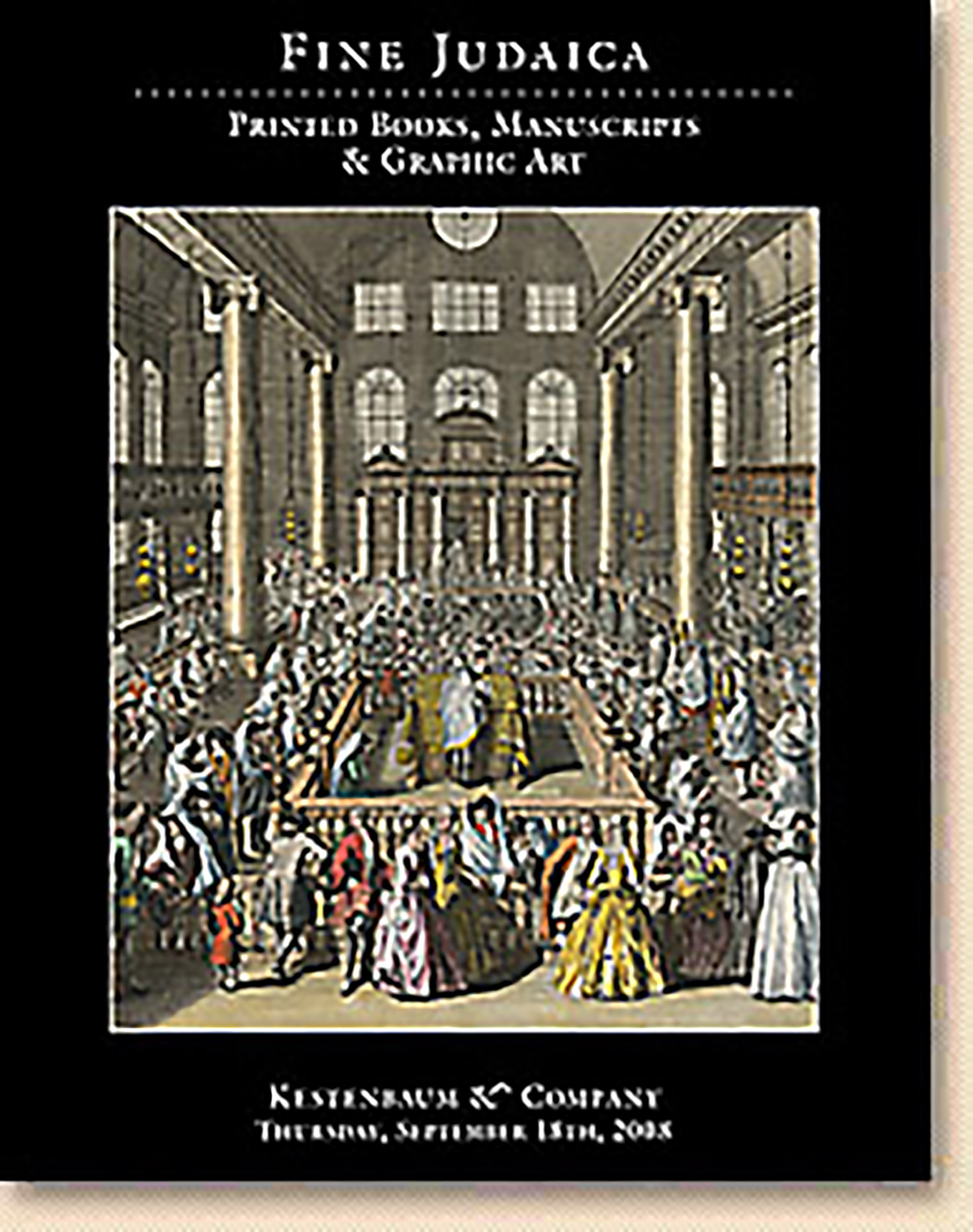Limborch, Philipp van

AUCTION 41 |
Thursday, September 18th,
2008 at 1:00
Fine Judaica: Printed Books, Manuscripts, & Graphic Art
Lot 182
Limborch, Philipp van
Amsterdam: Pieter Visser 1723
Est: $600 - $900
Philipp van Limborch (1633-1712), Dutch theologian, was professor at the Remonstrant Seminary in Amsterdam. Our volume records the disputation between van Limborch and the Marrano Isaac (Balthazar) Orobio de Castro (1620-1687). A former professor of medicine in Seville, de Castro was forced to flee his homeland for the safety of Amsterdam. There, the outspoken Jewish thinker freely expressed his views, which were critical of the New Testament. De Castro repeated the classic counter-argument to Christianity first voiced by Nachmanides at the Disputation of Barcelona in 1263: Jesus could not possibly have been the Messiah, since mankind has not changed for the better. Voltaire wrote of the de Castro-van Limborch debate: “This is perhaps the first dispute between two theologians in which no insults are traded; on the contrary, the two adversaries treat each other with respect.” See M.H. Gans, Memorbook (1977), p. 85.
Uriel da Costa’s autobiography, was first published in van Limborch’s Amica collatio in 1687. Da Costa or Acosta (1585-1640) was a Marrano who sacrificed much for his Judaism in his native Portugal. However, upon reentry to the Jewish community at Amsterdam, he was unable to reconcile himself to rabbinic Judaism, which was so different from the purely Biblical Judaism he imagined in his homeland. After writing a few pages of autobiography, this tragic figure committed suicide. Some speculate that da Costa's autobiography has been doctored. EJ, Vol. V, cols. 987-88
